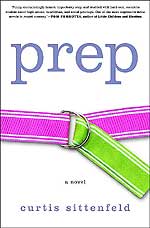
Lee keeps her scrutiny of the student body of her prep school to herself until she is interviewed by a reporter from the New York Times, who capitalizes on Lee’s mistake of sharing a little too much about Ault. It is ironic that Lee nearly makes it all the way through Ault completely unnoticed and in the last month of her senior year she is unfavorably exposed by her experiences of being unnoticed. This version provides a very interesting “ten years later” follow-up of some of the major characters, which gives necessary closure to the story.
Because Lee is a highly analytical teenage girl, this book can be very valuable in providing insight into the adolescent psyche. There is one moment of particular interest to educators. In Lee’s sophomore year she has a teacher who really thinks she has Lee’s personality and student work ethic pegged, when in reality she couldn’t be more wrong. The way Lee feels in that moment serves as a reminder to me as a teacher that I don’t always know everything about my students. In my library, I have little cardboard stands that display the number of each table. Sometimes when I am tidying up, I see where my kids have written their names or drawn pictures on the cardboard stands and I always wonder, When did they have time to do that? They are busy from the time they sit down until the time they leave. I just think I know what is going on in the room. I don’t really. Not at all. The implication for all of us is that there is significance in recognizing that at any given moment there are so many other events occurring in a classroom prior to, during, and following instruction that we simply don’t have a clue about. I do wonder whether increasing our awareness of these side-shows would increase our understanding of kids and therefore our effectiveness in reaching their minds.
